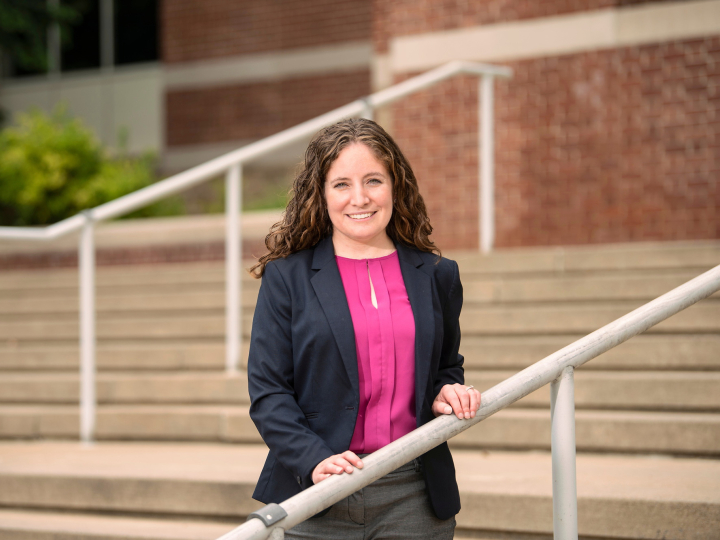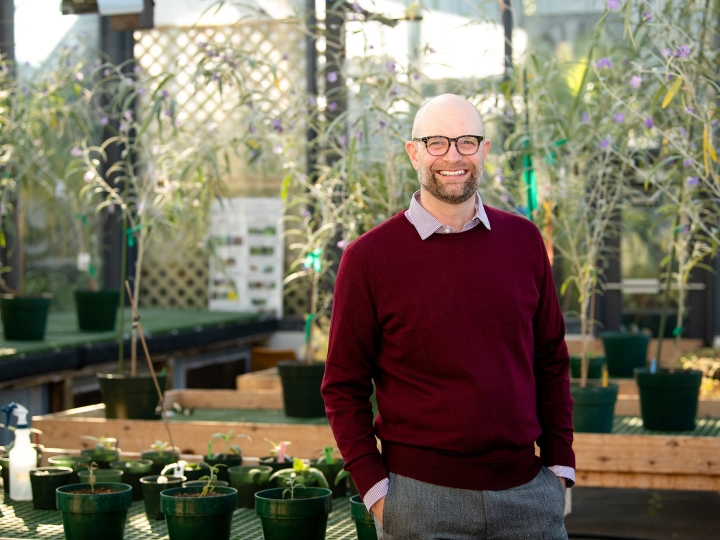Baby Talk
February 23, 2015
By the time they are six months old, infants typically can sit up and reach for items, make social eye contact and produce vocal babbling that sounds like speech. While their words may not make a lot of sense to someone listening to the cooing of an infant at play, six-month-old babies can understand many words, including "mommy" and "daddy," as well as words for body parts and food.
In the Baby Lab at Bucknell, Professor Ruth Tincoff, psychology, is asking how and why this is true and her theory is that language comes to infants not only in what they hear, but in what they feel. She's also learning that infants have a grasp on language even earlier than was previously thought.
Tincoff 's recent research with colleagues from Purdue University has shown that children as young as four months can recognize the sound pattern of words. In a paper published in Developmental Science, the cognitive developmental psychologist and her co-authors highlight connections between tactile sensory input and language acquisition. As parents interact with their babies, for example, they often speak to them while touching them. They might refer to their feet while tickling their toes or comment on their tiny fingers while holding their hands. The act of touching seems to solidify those words and ideas for infants and it solidifies for researchers like Tincoff that the knowledge infants gain about the world around them is enhanced through experience.
Thinking while doing," said Tincoff, "creates a different kind of knowledge than doing just one or the other."
In Tincoff 's study, babies and their parents were placed in a room outfitted with speakers and a video camera. As pre-recorded audio of repeated nonsense words in a sentence-like stream was played through the speakers, particular word-sounds were paired with touch. The video recorded the infants' movements as they listened and the researchers recorded surprise responses, eye movements and head turns to gauge the infants' understanding. Results indicate that associating words with touch helps infants recognize particular words, which can lead to earlier vocabulary formation.
As do many professors at Bucknell, Tincoff frequently invites undergraduates to assist with her research projects. In a follow-up to the published study, she asked parents of four-month-olds and parents of 10-month-olds to teach their babies made-up words for body parts in order to see how parents might spontaneously use touch and talk. Recent graduate Christa Wojcik '14helped discover through this word game that parents do coordinate their touch and talk and the team is preparing to submit the results for publication.
Lauren Buckley '15is writing an honors thesis that moves the project another step forward by examining the babies' responses to the parents' communication. Do the babies look at their parents or where they are touching? How do the babies' emotional expressions and vocalizations change?
Not only does the team's work help researchers and parents better understand babies' cognitive abilities, it has the potential to affect the study and treatment of language disorders by showing the ways in which the brain processes touch and links it to language.
And for parents with babies, it means good news, Tincoff said. "This research can help parents of infants appreciate that an activity they do every day has deep and meaningful benefits for their children."
This story originally appeared in Bucknell Magazine. To read more from the latest issue, click here.

